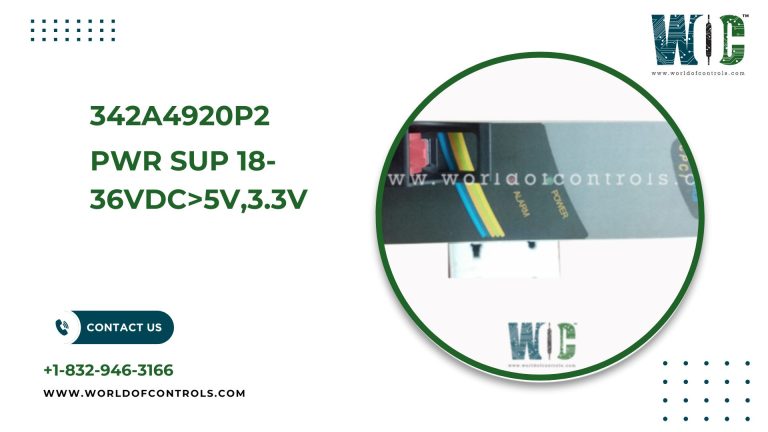Introduction
As industries become increasingly automated and digitized, the importance of reliable power delivery to control systems and electronic components cannot be overstated. Among the many unsung heroes of modern industrial systems are compact power supply modules—small but powerful devices that play a vital role in maintaining operational stability. Particularly in sectors such as the turbine industry, where precision, reliability, and uptime are critical, compact power supplies ensure the seamless functioning of electronic infrastructure.
This article explores the critical role compact DC-DC power supplies play in industrial electronics, with a focus on their application in turbine control systems. It examines how these modules handle demanding conditions, support advanced technology, and contribute to efficient, safe operations in energy-intensive environments.
Power Supply Demands in Industrial Settings
The Need for Stable Low-Voltage Power
Modern industrial systems rely on an array of digital components—microcontrollers, sensors, communication devices, and embedded systems—that operate on low-voltage power, typically 5V and 3.3V. These voltages must remain stable to avoid data errors, system crashes, or hardware damage. Yet, in many industrial environments, the available power source is a higher DC voltage, often ranging from 18V to 36V.
This discrepancy is where DC-DC power converters come into play. These modules are responsible for stepping down high-voltage inputs to precise low-voltage outputs required by sensitive components. Without them, modern control systems would be unable to function reliably.
Challenges in Industrial Environments
Industrial settings present numerous challenges: extreme temperatures, electrical noise, vibrations, and compact space constraints. Power supply solutions must be designed to handle these conditions without compromising performance. Compact power modules must deliver high efficiency and stability while occupying minimal space within crowded control panels or embedded systems.
Compact Power Supplies: A Backbone for Turbine Operations
Importance in Turbine Control Systems
In the turbine industry, control systems are the nerve center of operations. These systems monitor key variables such as temperature, pressure, and rotational speed, making real-time adjustments to maintain optimal performance and safety. The entire system depends on uninterrupted, reliable power to operate effectively.
Compact DC-DC power supplies are typically used to convert the main power supply voltage into usable levels for control boards, sensors, and processing units. By providing stable 5V and 3.3V outputs from a wide input range like 18–36VDC, these modules ensure that the critical electronic functions of turbine systems remain powered and responsive.
Space Efficiency and Integration
Turbine control systems are often enclosed in tight spaces. Large power conversion units are not feasible in such configurations. Compact modules are specifically designed to meet the space constraints of embedded and rack-mounted systems. Their small footprint allows for greater flexibility in system design, ease of maintenance, and scalability for future upgrades.
Moreover, many compact power modules are designed to deliver dual outputs, allowing a single unit to power multiple voltage rails. This minimizes component count, reduces wiring complexity, and simplifies system integration—further increasing efficiency and reliability.
Benefits Beyond Size
Reliability in Harsh Conditions
Industrial and turbine environments are prone to electrical interference, temperature fluctuations, and mechanical vibrations. High-quality compact power supplies are built to withstand such conditions, often featuring rugged construction, thermal protection, and low electromagnetic interference (EMI). This reliability ensures continuous operation even in the harshest scenarios.
Improved System Efficiency
By converting power efficiently, these modules help reduce heat generation and energy loss. This not only protects sensitive components but also contributes to the overall energy efficiency of the system—a vital consideration in the energy sector where turbines are employed.
Reduced Downtime and Maintenance
With fewer components, high integration, and robust construction, compact power supplies are less prone to failure. This translates to reduced system downtime, lower maintenance costs, and increased equipment lifespan—key performance indicators in any industrial operation.
Conclusion
Compact DC-DC power supplies are essential components in industrial electronics, particularly within the turbine industry. Their ability to deliver stable low-voltage outputs from variable high-voltage inputs, while occupying minimal space and enduring harsh conditions, makes them indispensable for modern control systems.
As turbine technology evolves and industrial systems become more automated, the demand for reliable, compact, and high-efficiency power solutions will only grow. Whether in power plants, manufacturing facilities, or energy production systems, compact power supplies are quietly but crucially powering the future of industrial innovation.

